-
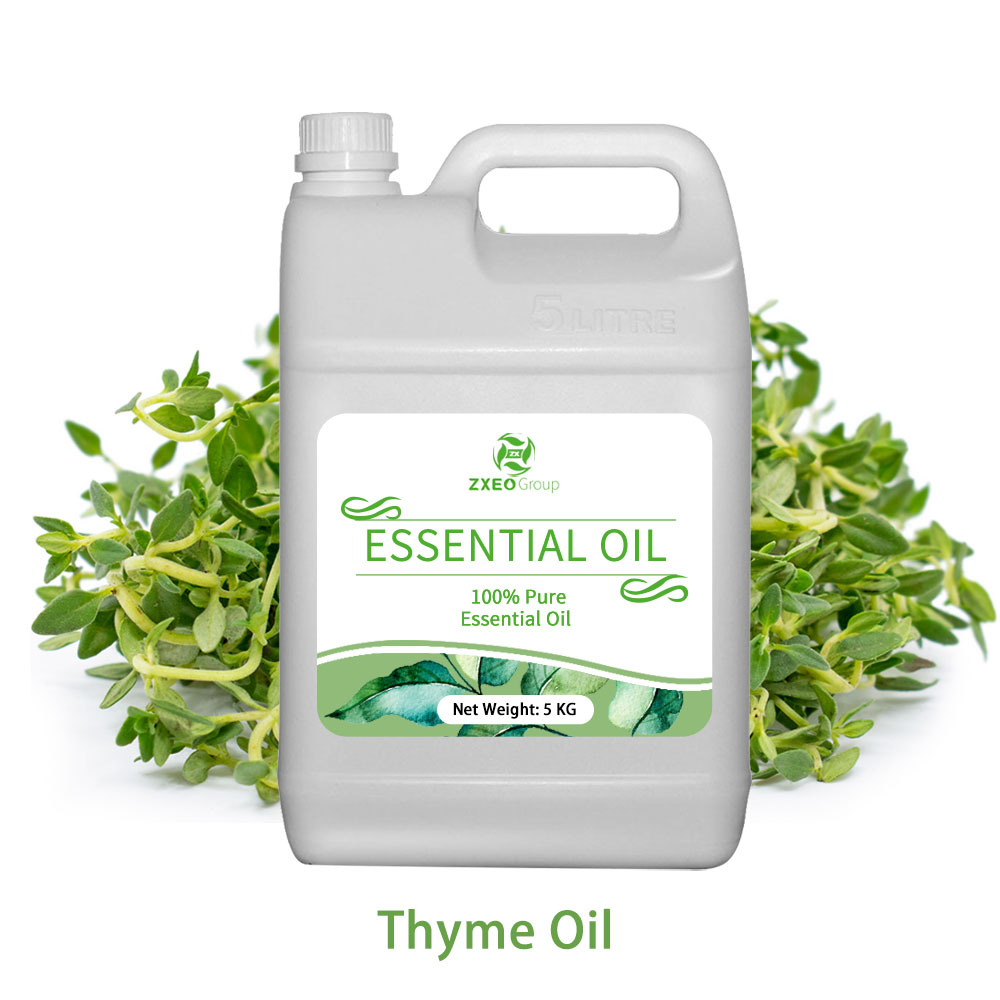
Thyme Essential Oil Aromatherapy Diffuser Oil
The health benefits of thyme essential oil can be attributed to its potential properties as an antispasmodic, antirheumatic, antiseptic, bactericidal, bechic, cardiac, carminative, cicatrizant, diuretic, emmenagogue, expectorant, hypertensive, insecticide, stimulant, tonic, and a vermifuge substance. Thyme is a common herb and is generally used as a condiment or spice. Besides that, thyme is also used in herbal and domestic medicines. It is botanically known as Thymus vulgaris.
Benefits
Some of the volatile components of thyme oil, such as camphene and alpha-pinene, are able to strengthen the immune system with their antibacterial and antifungal properties. This makes them effective both inside and outside the body, protecting the mucous membranes, gut and respiratory system from potential infections. The antioxidant properties of this oil also help to reduce free radical damage.
This is a tremendous property of thyme essential oil. This property may makes scars and other ugly spots on your body vanish. These may include surgical marks, marks left by accidental injuries, acne, pox, measles, and sores.
Topical application of thyme oil is very popular on the skin, as it can heal wounds and scars, may prevent inflammatory pain, moisturize the skin, and even minimize the appearance of acne. The mixture of antiseptic properties and antioxidant stimulants in this oil can keep your skin looking clear, healthy, and young as you age!
The same caryophyllene and camphene, along with a few other components, give thyme essential oil antibacterial properties. This may inhibit bacterial growth within and outside of the body by killing the bacteria as well as keeping them away from the organs in the body.
Uses
If you’re struggling with congestion, a chronic cough, respiratory infections, this chest rub can provide a great deal of relief and help give your immune system a boost.
Mix 5-15 drops of essential oil in 1 tablespoon of carrier oil or fragrance-free, natural lotion, apply to the upper chest and upper back. Either variety can be used, however, as mentioned above, those with sensitive skin, pregnant, small children, or with high blood pressure should opt for the gentler Thyme.
Cautions
Possible skin sensitivity. Keep out of reach of children. If you are pregnant, nursing, or under a doctor’s care, consult your physician. Avoid contact with eyes, inner ears, and sensitive areas.
-
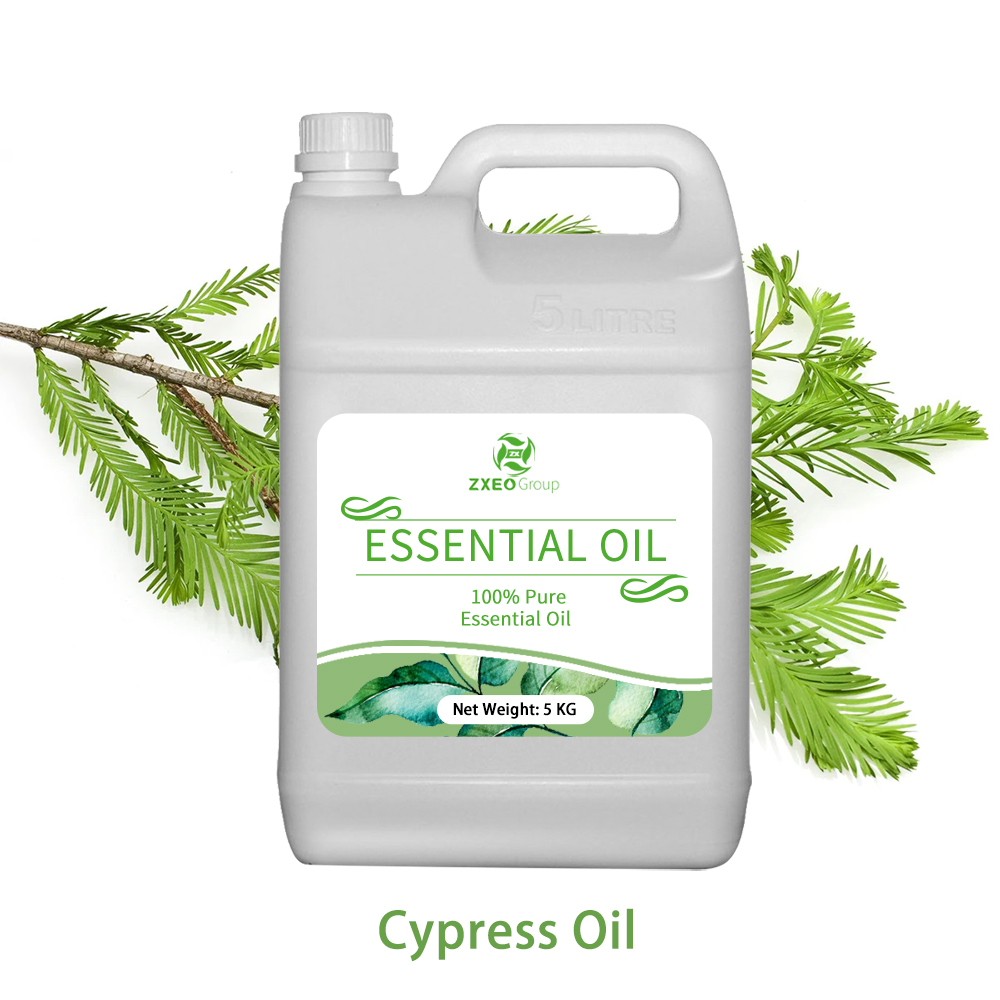
Cypress Essential Oil for Diffuser Aromatherapy Massage Hair
There are plenty of essential oils out there. But unlike the tea trees and lavenders and peppermints of the world that get plenty of attention in the skincare space, cypress oil flies somewhat under the radar. But it shouldn’t—the ingredient has been well-studied and is shown to have some proven topical benefits, particularly for those with oily or acne-prone skin.
Benefits
Like most essential oils, Cypress essential oil is perfectly suited for use in your hair on its own, or when added to a regular herbal shampoo to help boost its qualities. The oil can be massaged into your scalp (preferably after wetting your hair) to help stimulate the flow of blood to your scalp. This will help to pass vital nutrients and minerals to your hair follicles, allowing you to strengthen and nourish your hair from within, as well as slow (and ultimately prevent) hair loss.
Cypress essential oil is great for ridding the body of bacteria that lead to infections, so can be ingested to help treat your cold or the flu, whilst aiding your body’s overall functionality. At the same time, the oil can be used to help treat a cough you may have, as it’s considered a natural antispasmodic and respiratory tonic.
Because cypress essential oil is anti-microbial and anti-bacterial, it can help clean and heal cuts and wounds, preventing skin infections and scars. Be sure to dilute in a carrier oil before applying it to the skin. Please be advised that for significant cuts and deeper wounds, you should seek medical attention.
As a pore cleanser, cypress oil naturally draws out toxins and impurities from the skin, helps to shrink pores, and firm loose sagging skin. With regular daily use, you can expect natural detoxification which will expose newly regenerated skin for an increased glow in your complexion!
Uses
Promoting vitality and boosting energetic feelings, Cypress oil can be used for its aromatic and topical benefits. Cypress oil is composed of monoterpenes, which can help improve the appearance of oily skin. It can also be applied topically to give the body an energizing lift. The chemical structure of Cypress oil also contributes to its renewing and uplifting fragrance. When used aromatically, Cypress oil produces a clean aroma that has both an invigorating and grounding effect on the emotions. Due to Cypress oil’s rejuvenating aroma and skin benefits, it is commonly used in spas and by massage therapists.
Cautions
Possible skin sensitivity. Keep out of reach of children. If you are pregnant, nursing, or under a doctor’s care, consult your physician. Avoid contact with eyes, inner ears, and sensitive areas.
-
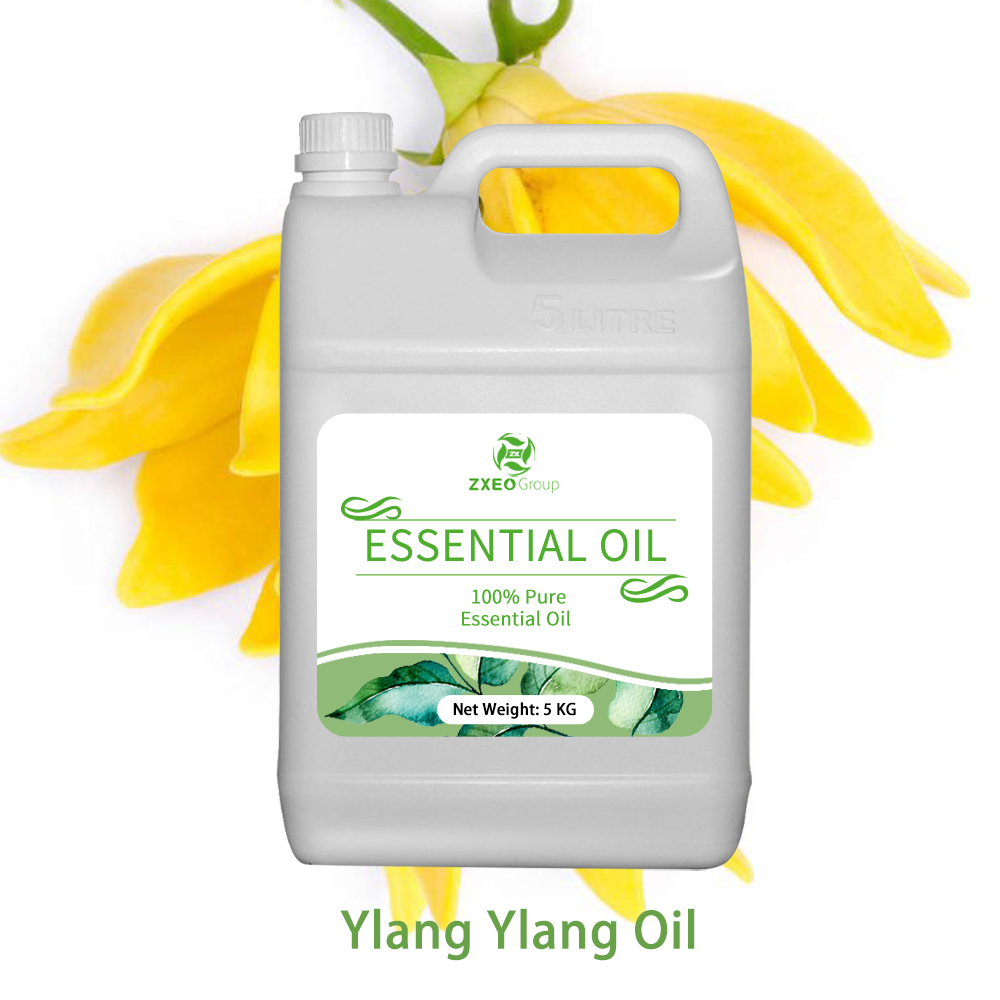
Ylang Ylang Essential Oil 100% Pure Therapeutic Grade for Aromatherapy
Ylang ylang essential oil benefits your health in numerous ways. This floral fragrance is extracted from the yellow flowers of a tropical plant, Ylang ylang (Cananga odorata), native to southeast Asia. This essential oil is obtained by steam distillation and is widely used in many perfumes, flavoring agents, and cosmetics.
Benefits
Reduce blood pressure
Ylang ylang essential oil, when absorbed by the skin, may help lower blood pressure. The oil may help manage hypertension. A study on an experimental group that inhaled a blend of essential oils with ylang-ylang reported having lower levels of stress and blood pressure. In yet another study, ylang ylang essential oil aroma was found to reduce both systolic and diastolic blood pressure levels.
Anti-Inflammatory
Ylang ylang essential oil contains isoeugenol, a compound known for its anti-inflammatory properties. The compound may also help reduce oxidative stress. This process may eventually reduce the risk of chronic diseases, such as cancer or cardiovascular disorders.
Help Treat Rheumatism And Gout
Traditionally, ylang ylang oil has been used to treat rheumatism XAn autoimmune disease in which the immune system attacks healthy tissue in the body, causing joint pain, swelling, and stiffness. and goutXA medical condition that occurs when excess uric acid crystalizes in the joints leading to pain, swelling, redness, and tenderness. . There are no scientific studies to back this claim, however. Ylang ylang contains isoeugenol. Isoeugenol was found to have anti-inflammatory and antioxidant activity. In fact, isoeugenol has been suggested as an antiarthritic treatment in mice studies.
Improve Skin And Hair Health
Traditionally, ylang ylang has been used in skin care for treating acne. It has been reported that it can inhibit the activity of bacteria responsible for causing acne.
Uses
Anti-Aging Massage Oil For Skin
Mix 2 drops of the essential oil with 1 tablespoon of the carrier oil like coconut or jojoba oils. Gently massage the mixture into the face. Regular use will make the skin soft and supple.
Hair conditioner
Mix the essential oil (3 drops) with the Coconut or jojoba carrier oils (1 tablespoon). Gently massage the mixture into the hair and scalp. Regular use will make your hair shiny and healthy. The antimicrobial properties of the essential oils may help fight dandruff.
Mood Enhancer
Apply a few drops of ylang-ylang essential oil to your wrists and neck to reduce fatigue and improve mood. It also may help in the treatment of acute depression.
Digestive Aid
To prevent poor blood flow or feelings of stress and anxiety that can interfere with healthy digestion, try inhaling some, massaging it over the digestive organs or consuming several drops daily.
Cautions
Possible skin sensitivity. Keep out of reach of children. If you are pregnant, nursing, or under a doctor’s care, consult your physician. Avoid contact with eyes, inner ears, and sensitive areas.
-
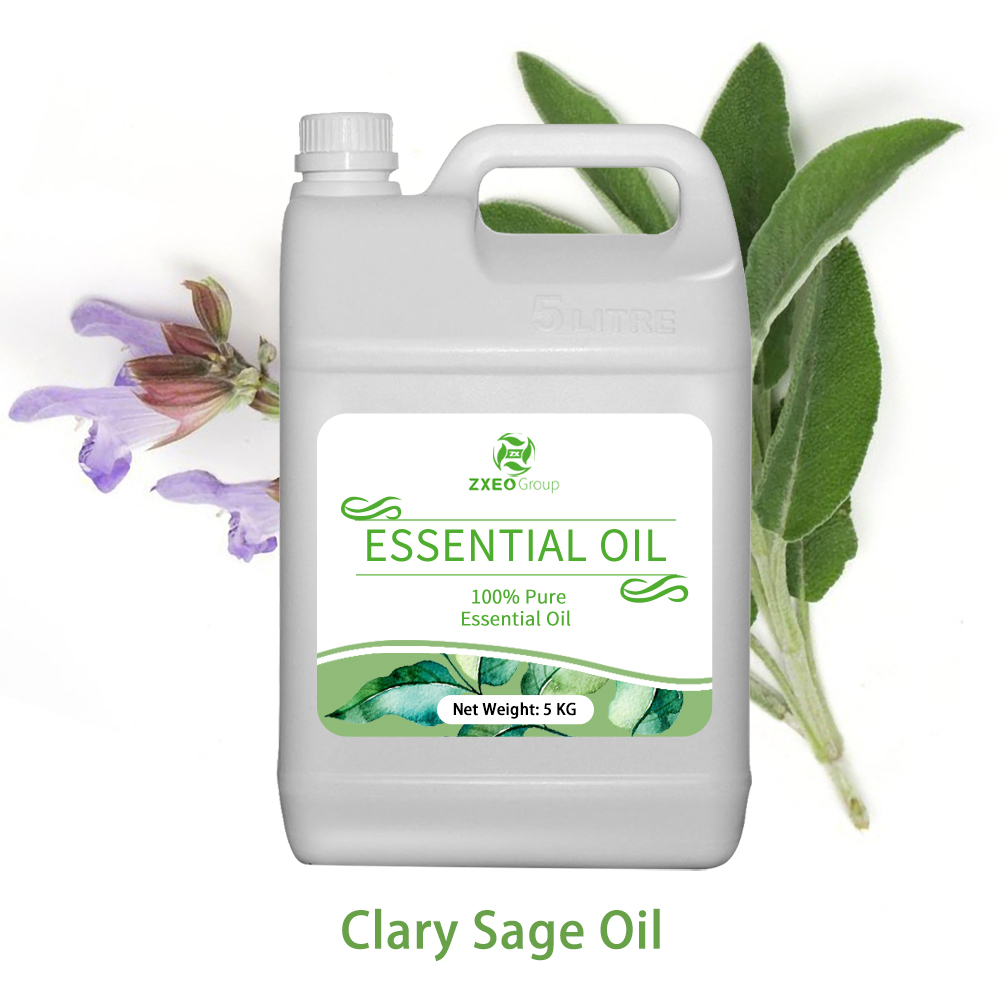
Pure Natural Clary Sage Essential Oil
The clary sage plant has a lengthy history as a medicinal herb. It’s a perennial in the genus Salvi, and its scientific name is salvia sclarea. It’s considered to be one of the top essential oils for hormones, especially in women. Many claims have been made as to its benefits when dealing with cramps, heavy menstrual cycles, hot flashes and hormonal imbalances. It’s also known for its ability to increase circulation, support the digestive system, improve eye health.
Benefits
Relieves Menstrual Discomfort
Clary sage works to regulate the menstrual cycle by balancing hormone levels naturally and stimulating the opening of an obstructed system. It has the power to treat symptoms of PMS as well, including bloating, cramps, mood swings and food cravings.
Relieves Insomnia People
suffering from insomnia may find relief with clary sage oil. It is a natural sedative and will give you the calm and peaceful feeling that is necessary in order to fall asleep. When you can’t sleep, you usually awaken feeling unrefreshed, which takes a toll on your ability to function during the day. Insomnia affects not only your energy level and mood, but also your health, work performance and quality of life.
Increases Circulation
Clary sage opens the blood vessels and allows for increased blood circulation; it also naturally lowers blood pressure by relaxing the brain and arteries. This boosts the performance of the metabolic system by increasing the amount of oxygen that gets into the muscles and supporting organ function.
Promotes Skin Health
There is an important ester in clary sage oil called linalyl acetate, which is a naturally occurring phytochemical found in many flowers and spice plants. This ester reduces skin inflammation and works as a natural remedy for rashes; it also regulates the production of oil on the skin
Aid digestion
Clary sage oil has been used to boost the secretion of gastric juices and bile, which speeds up and eases the digestive process. By relieving symptoms of indigestion, it minimizes cramping, bloating and abdominal discomfort.
Uses
- For stress relief and aromatherapy, diffuse or inhale 2–3 drops of clary sage essential oil. To improve mood and joint pain, add 3–5 drops of clary sage oil to warm bath water.
- Try combining the essential oil with epsom salt and baking soda to make your own healing bath salts.
- For eye care, add 2–3 drops of clary sage oil to a clean and warm wash cloth; press cloth over both eyes for 10 minutes.
- For cramp and pain relief, create a massage oil by diluting 5 drops of clary sage oil with 5 drops of a carrier oil (like jojoba or coconut oil) and apply it to needed areas.
- For skin care, create a mix of clary sage oil and a carrier oil (like coconut or jojoba) at a 1:1 ratio. Apply the mixture directly to your face, neck and body.
-
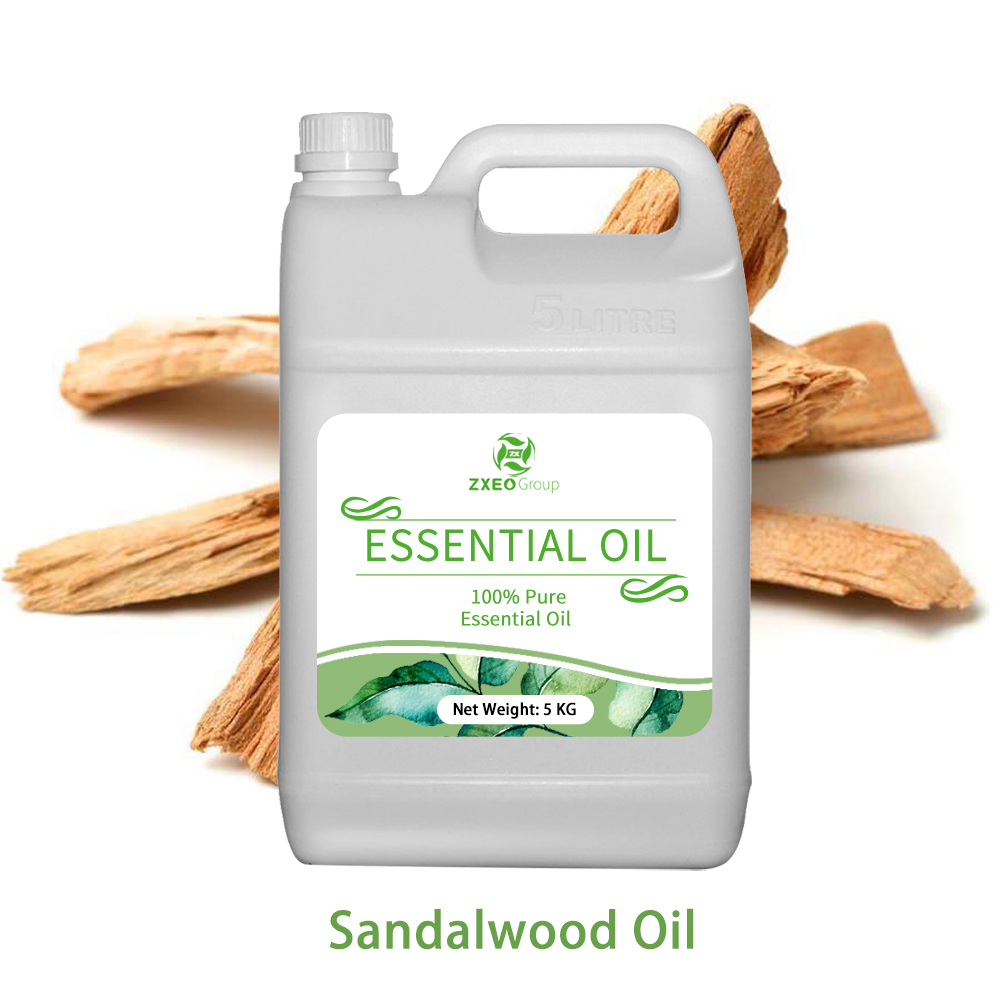
OEM/ODM Organic Natural Sandalwood Tree 100% Pure Essential Oil
For centuries, the dry, woody aroma of the sandalwood tree made the plant useful for religious rituals, meditation, and even for ancient Egyptian embalming purposes. Today, essential oil taken from the sandalwood tree is particularly useful for enhancing mood, promoting smooth skin when used topically, and providing grounding and uplifting feelings during meditation when used aromatically. The rich, sweet aroma and versatility of Sandalwood oil makes it a unique oil, useful in everyday life.
Benefits
Lowers Stress and Improves Sleep
Sedentary lifestyle and stress can affect sleep quality. Some research indicates that sandalwood is effective for easing anxiety and stress. It can have sedative effects, reduce wakefulness, and boost non-REM sleep time, which is great for conditions like insomnia and sleep apnea.
Treats Acne and Pimples
With its anti-inflammatory and skin-clearing properties, sandalwood essential oil can help clear acne and pimples and soothe skin. Regular use of this oil can even help prevent further acne breakouts.
Removes Dark Spots and Scars
Acne and pimples generally leave unpleasant dark spots, scars, and blemishes. Sandalwood oil soothes the skin and reduces scars and marks much faster than other products.
Fights Ageing Signs
Rich in antioxidants and toning properties, sandalwood essential oil fights wrinkles, dark circles, and fine lines. It reduces the damage caused by environmental stress and free radicals, thus curbing signs of ageing. Apart from this, it can also prevent oxidative stress and repair damaged skin tissues.
Blend well with
Romantic and musky rose, green, herbal geranium, spicy, complex bergamot, clean lemon, aromatic frankincense, slightly pungent marjoram and fresh, sweet orange.
Cautions
Possible skin sensitivity. Keep out of reach of children. If you are pregnant, nursing, or under a doctor’s care, consult your physician. Avoid contact with eyes, inner ears, and sensitive areas.
-
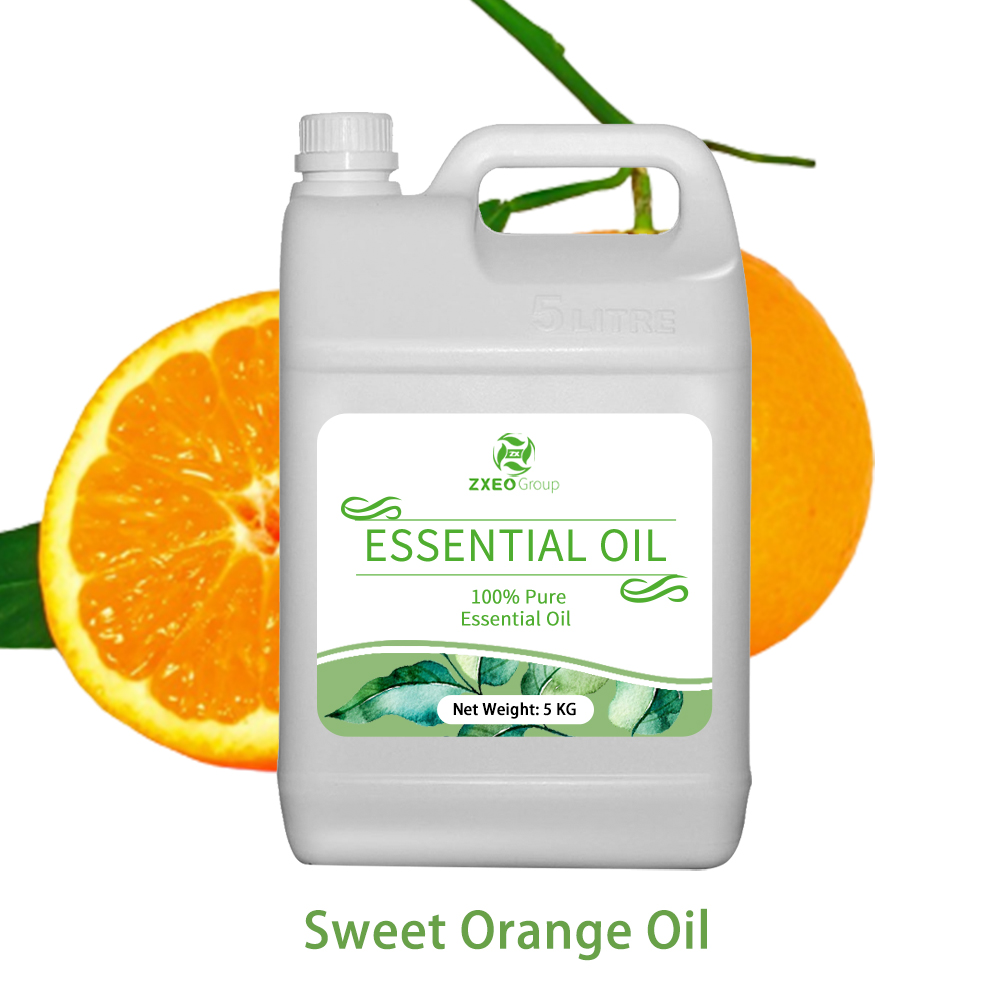
Sweet Orange Essential Oil Nature Aromatherapy
Sweet Orange Essential Oil is most often referred to simply as Orange Oil. With its versatility, affordability and wonderfully uplifting aroma, Sweet Orange Essential Oil is one of the most popular of essential oils within aromatherapy. The aroma of Sweet Orange Oil is cheerful and helps to improve the aroma of a stale-smelling or smoky room. (Lemon Essential Oil is even better for diffusing in smoky rooms). Sweet Orange Essential Oil has become a popular ingredient within a wide assortment of natural (and some not-so-natural) household cleaning products.
Benefit and Uses
- Orange Essential Oil, most commonly referred to as Sweet Orange Essential Oil, is derived from the fruits of the Citrus sinensis botanical. Conversely, Bitter Orange Essential Oil is derived from the fruits of the Citrus aurantium botanical.
- Orange Oil’s ability to naturally enhance immunity and reduce several symptoms of numerous ailments have lent it to traditional medicinal applications for the treatment of acne, chronic stress, and other health concerns.
- Used in aromatherapy, Orange Essential Oil’s pleasant scent has a cheerful and uplifting yet simultaneously relaxing, calming effect that helps reduce pulse rate. It can not only create a warm environment but can also stimulate the strength and resilience of the immune system and eliminate airborne bacteria.
- Used topically, Orange Essential Oil is beneficial for maintaining the health, appearance, and texture of skin by promoting clarity, radiance, and smoothness, thereby reducing the signs of acne and other uncomfortable skin conditions.
- Applied in a massage, Orange Essential Oil is known to increase blood flow. This is known to relieve discomforts associated with inflammation, headaches, menstruation, and low libido.
- Used medicinally, Orange Essential Oil reduces the incidents of painful and reflexive muscle contractions. It is traditionally used in massages to relieve stress, abdominal pain, diarrhea, constipation, indigestion or improper digestion, and congestion of the nose.
Blend well with
There are many more oils that sweet orange blends well with: Basil, Black Pepper, Cardamom, Chamomile, Clary Sage, Clove, Coriander, Cypress, Fennel, Frankincense, Ginger, Juniper, Berry, Lavender, Nutmeg, Patchouli, Rosemary, Sandalwood, Sweet Marjoram, Thyme, Vetiver, Ylang Ylang.
-
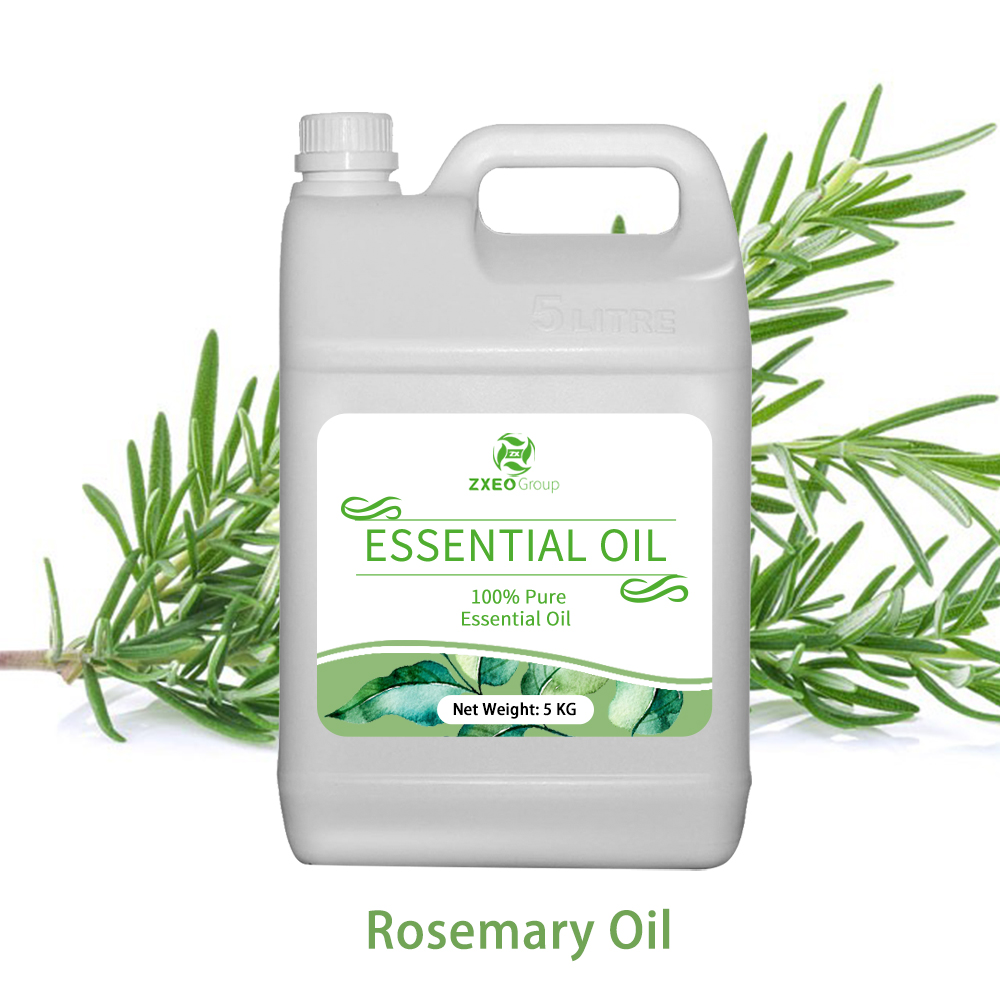
Rosemary Essential Oil for Hair Growth
Rosemary essential oil benefits might make you want to use it. Humanity has known about and reaped the benefits of rosemary for ages because ancient Greek, Roman, and Egyptian cultures revered rosemary and considered it sacred. Rosemary oil is full of health-promoting compounds and provides anti-inflammatory, analgesic, antibacterial, antifungal, and expectorant benefits. The herb also improves digestive, circulatory, and respiratory functions.
Benefits and Uses
Combat Gastrointestinal Stress
Rosemary oil can be used to relieve a variety of gastrointestinal complaints, including indigestion, gas, stomach cramping, bloating and constipation. It also stimulates appetite and helps regulate the creation of bile, which plays a crucial role in digestion. To treat stomach ailments, combine 1 teaspoon of a carrier oil such as coconut or almond oil with 5 drops of rosemary oil and gently massage the mixture over your abdomen. Applying rosemary oil in this way on a regular basis detoxifies the liver and promotes gallbladder health.
Relieve Stress and Anxiety
Research shows that simply inhaling the aroma of rosemary essential oil can lower levels of the stress hormone cortisol in your blood. When stress is chronic, cortisol can cause weight gain, oxidative stress, high blood pressure and heart disease. You can combat stress instantly using an essential oil diffuser or even by inhaling over an open bottle. To create an anti-stress aromatherapy spray, simply combine in a small spray bottle 6 tablespoons of water with 2 tablespoons of vodka, and add 10 drops of rosemary oil. Use this spray at night on your pillow to relax, or spray it into the air indoors any time to relieve stress.
Reduce Pain and Inflammation
Rosemary oil has anti-inflammatory and pain-relieving properties you can benefit from by massaging the oil on the affected area. Mix 1 teaspoon of a carrier oil with 5 drops of rosemary oil to create an effective salve. Use it for headaches, sprains, muscle soreness or pain, rheumatism or arthritis. You can also soak in a hot bath and add a few drops of rosemary oil to the tub.
Treat Respiratory Problems
Rosemary oil works as an expectorant when inhaled, relieving throat congestion from allergies, colds or flus. Inhaling the aroma can fight respiratory infections because of its antiseptic properties. It also has an antispasmodic effect, which helps in the treatment of bronchial asthma. Use rosemary oil in a diffuser, or add a few drops to a mug or small pot of boiling-hot water and inhale the vapor up to 3 times daily.
Promote Hair Growth and Beauty
Rosemary essential oil has been found to increase the growth of new hair by 22 percent when massaged onto the scalp. It works by stimulating scalp circulation and can be used to grow longer hair, prevent baldness or stimulate new hair growth in balding areas. Rosemary oil also slows the graying of hair, promotes shininess and prevents and reduces dandruff, making it a great tonic for overall hair health and beauty.
-
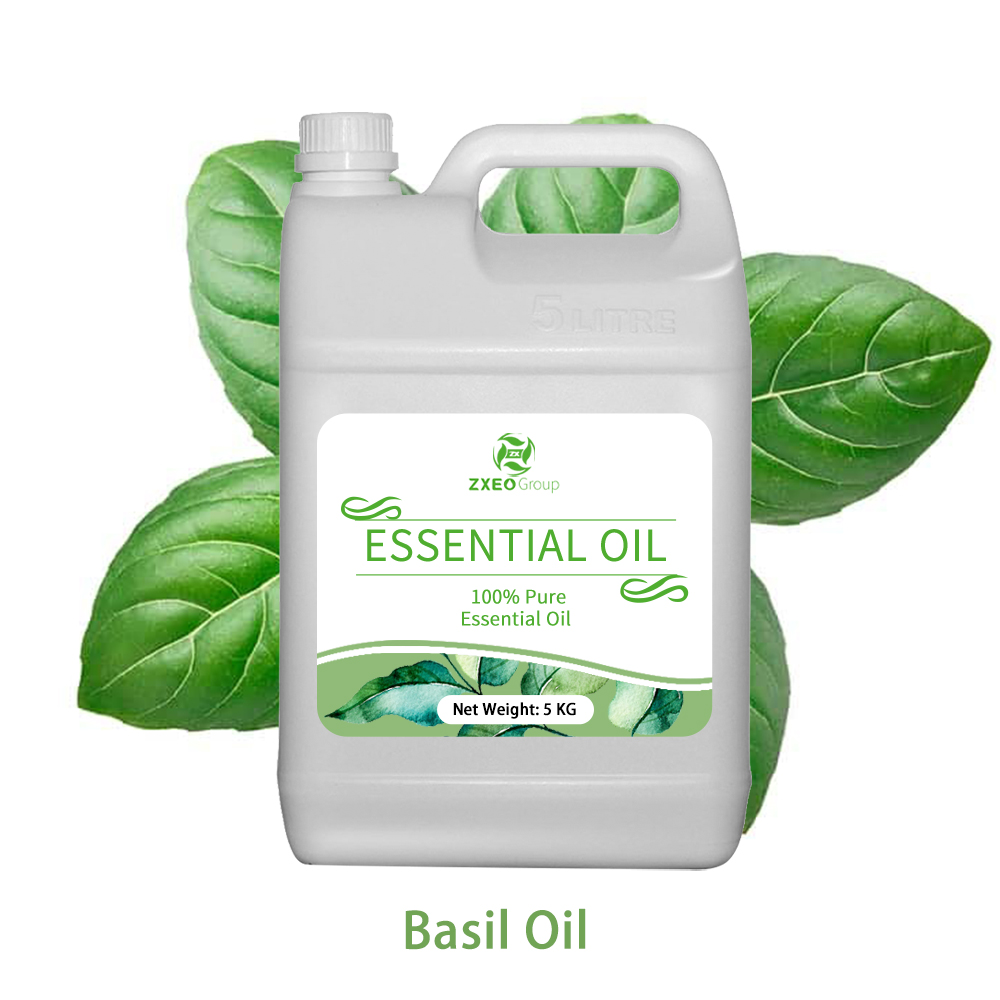
Basil Oil Essential oil for Skin and Health Aromatherapy Diffusers
Sweet Basil Essential Oil is known to emit a warm, sweet, freshly floral and crisply herbaceous scent that has been described as being airy, vibrant, uplifting, and reminiscent of the scent of licorice. This fragrance is reputed to blend well with citrusy, spicy, or floral essential oils, such as Bergamot, Grapefruit, Lemon, Black Pepper, Ginger, Fennel, Geranium, Lavender, and Neroli. Its aroma is further characterized as somewhat camphorous with nuances of spiciness that energize and stimulate the body and mind to promote mental clarity, enhance alertness, and calm the nerves to keep stress and anxiety at bay.
Benefits and Uses
Used in aromatherapy applications
Basil Essential Oil is ideal for soothing or eliminating headaches, fatigue, sadness, and the discomforts of asthma, as well as for inspiring psychological endurance. It is also reputed to benefit those who suffer from poor concentration, allergies, sinus congestion or infections, and symptoms of fevers.
Used cosmetically
Basil Essential Oil is reputed to refresh, nourish, and help support the repair of damaged or lackluster skin. It is often used to balance oil production, calm acne breakouts, alleviate dryness, soothe symptoms of skin infections and other topical ailments, and to support the skin’s suppleness and resilience. With regular diluted use, it is said to exhibit exfoliating and toning properties which remove dead skin and balance the skin tone to promote the complexion’s natural radiance.
In hair
Sweet Basil Oil is known for contributing a light and refreshing scent to any regular shampoo or conditioner as well as for stimulating circulation, regulating the scalp’s oil production, and facilitating healthy hair growth to reduce or slow the rate of hair loss. By hydrating and cleansing the scalp, it effectively removes any accumulation of dead skin, dirt, grease, environmental pollutants, and bacteria, thus soothing the itchiness and irritation that is characteristic of dandruff and other topical conditions.
Used medicinally
Sweet Basil Essential Oil’s anti-inflammatory effect is reputed to help calm skin that is afflicted with complaints, such as acne or eczema, and to soothe sores as well as minor abrasions.
Blend well with
citrusy, spicy, or floral essential oils, such as Bergamot, Grapefruit, Lemon, Black Pepper, Ginger, Fennel, Geranium, Lavender, and Neroli.
-
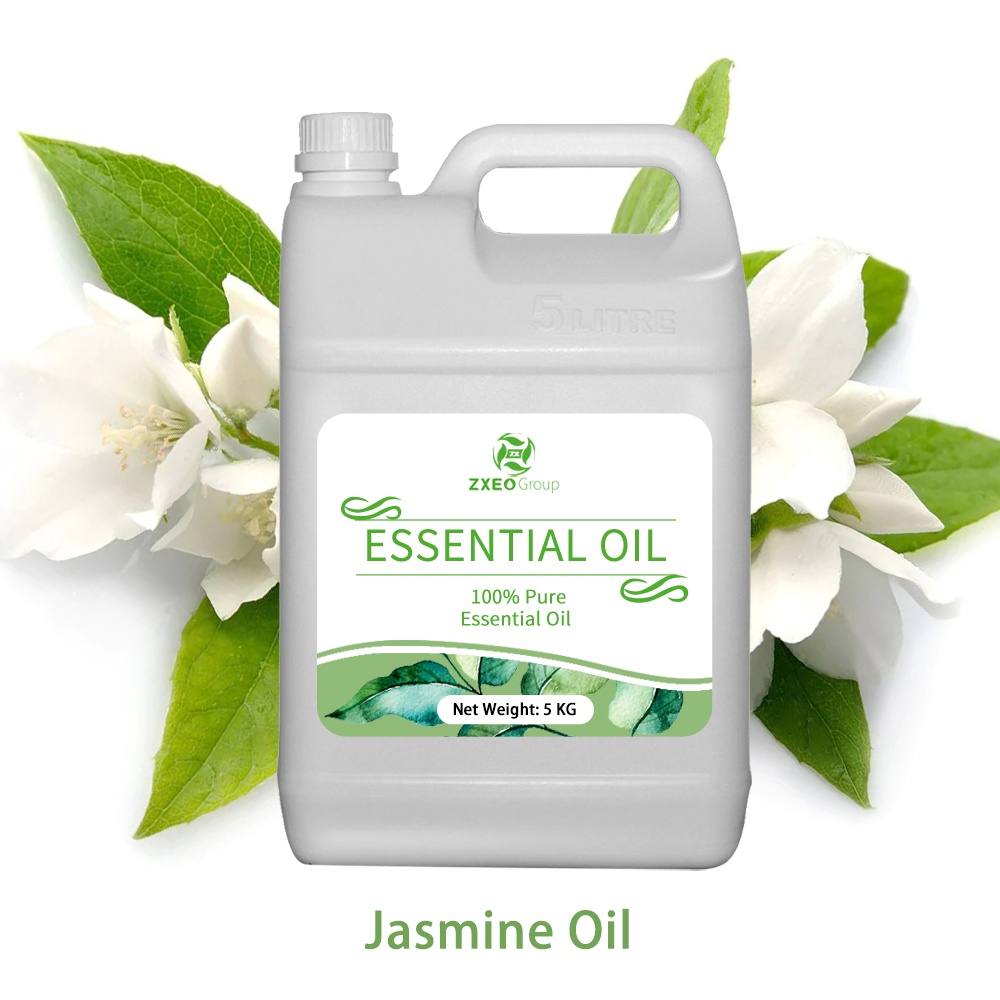
Jasmine Essential Oil For Skincare Hair care Body Health
Traditionally, jasmine oil has been used in places like China to help the body detox and relieve respiratory and liver disorders. It’s also used to decrease pain associated with pregnancy and childbirth.
Because of its aroma, the oil of jasmine finds widespread use in cosmetics and perfumery. The aroma of the oil is also of great use and is utilized in aromatherapy where it can treat not only psychological and emotional ailments but physical ones as well.
Benefits
Increase Arousal
Compared with a placebo, jasmine oil caused significant increases of physical signs of arousal — such as breathing rate, body temperature, blood oxygen saturation, and systolic and diastolic blood pressure — in a study done on healthy adult women.
Improve Immunity
Jasmine oil is believed to have antiviral, antibiotic and antifungal properties that make it effective for boosting immunity and fighting illness. In fact, jasmine oil has been used as a folk medicine treatment for fighting hepatitis, various internal infections, plus respiratory and skin disorders for hundreds of years in China and other Asian countries.
Boost Concentration
Jasmine oil is scientifically known for its stimulating and arousing properties. Diffusing jasmine oil or rubbing it onto your skin can help wake you up and boost energy.
Mood-Lifting Perfume
As I mentioned earlier, studies have confirmed jasmine oil’s mood-lifting benefits. Instead of using expensive store-bought perfumes, try dabbing jasmine oil onto your wrists and neck as a natural, chemical-free fragrance.
Prevent Infections
The oil of jasmine plant is known to have antiviral and antiseptic properties (which makes it a good disinfectant). Jasmine blossom oil has many active constituents that have antiviral, bactericidal and antimicrobial properties.
Blend well with
bergamot, chamomile, clary sage, geranium, lavender, lemon, neroli, peppermint, rose and sandalwood.
Side Effects
Jasmine is generally considered safe and non-irritating, but there’s always a risk for allergies or irritations occurring whenever you use essential oils. Especially if you’re new to using essential oils or have sensitive skin, make sure to start with a small amount and try diluting it with carrier oils.
-
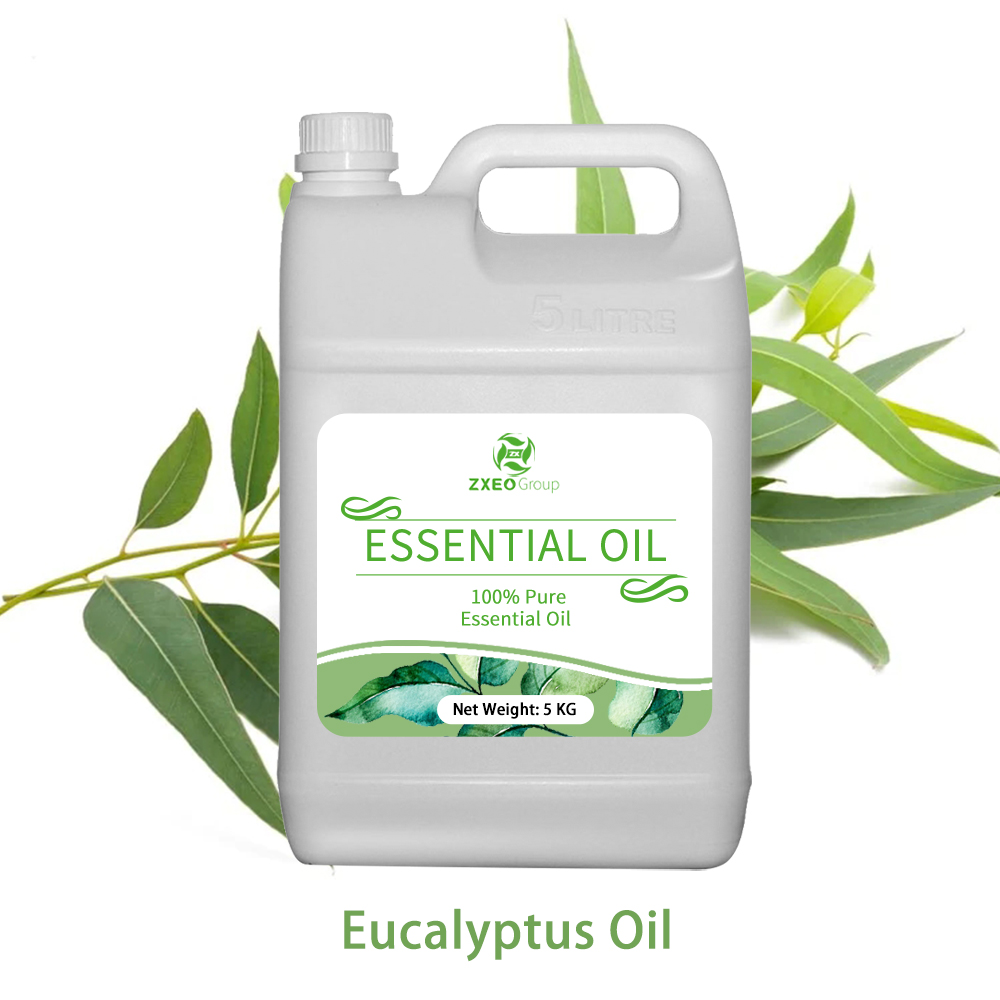
Eucalyptus Oil Essential oil for Diffusers Aromatherapy
Are you looking for an essential oil that will help to boost your immune system, protect you from a variety of infections and relieve respiratory conditions? Introducing: eucalyptus essential oil. It’s one of the best essential oils for sore throats, cough, seasonal allergies and headaches. Eucalyptus oil benefits are due to its ability to stimulate immunity, provide antioxidant protection and improve respiratory circulation. Researchers have found that its “broad-spectrum antimicrobial action make it an attractive alternative to pharmaceuticals.” This is why eucalyptus essential oil is commonly used in products to fight foreign pathogens and different forms of infections.
Benefits
Research suggests that the oil fights respiratory infections by killing bacteria, viruses, and fungi. This is why you can find it in saline nasal wash. It also causes the tiny hair-like filaments in your lungs (called cilia) that sweep out mucus and debris from your airways to move faster. This can also fight infections.
Eucalyptus is a key ingredient in some topical analgesics. These are pain relievers you apply directly to your skin, such as sprays, creams, or salves. While it’s not the main painkiller, eucalyptus oil works by bringing a cold or warm sensation that takes your mind off the pain.
In one clinical trial, people who breathed in eucalyptus oil after knee replacement surgery felt less pain and had lower blood pressure. Researchers think this may be due to something in the oil called 1,8-cineole. It may make your sense of smell work with your nervous system to lower your blood pressure.
Eucalyptus oil not only can help with pain post-op, but it also may help keep you calm before surgery, too. Researchers measured the effect on anxiety of breathing in essential oils in people about to have surgery. Before their operations, they smelled different oils for 5 minutes. The 1,8-cineole in eucalyptus oil worked so well that researchers suggested it may be useful for entire procedures.
Uses
- Diffuse or put a few drops on the hands, place them over the nose, and inhale deeply.
- Place one to two drops on the floor of your shower for a spa-like experience.
- Add to a carrier oil or lotion during a soothing massage.
- Use as an air freshener and room deodorizer.
-
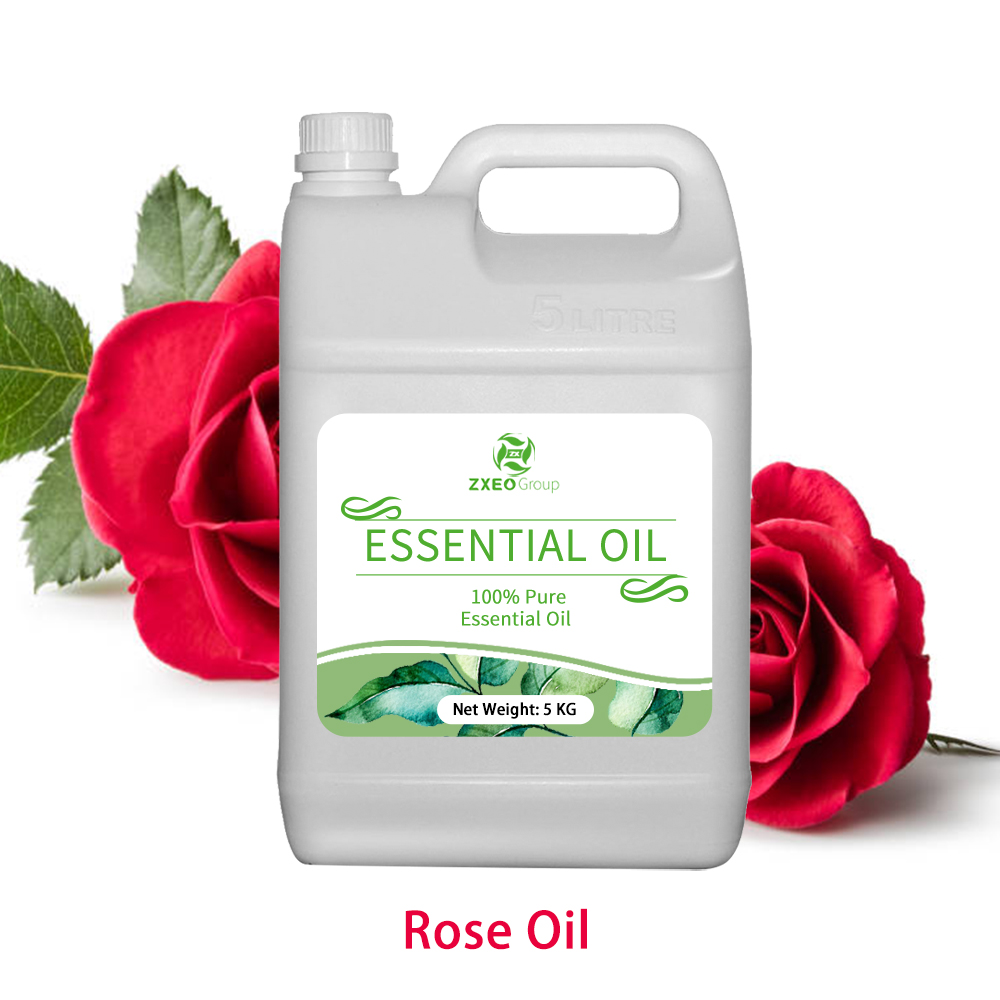
100% pure and natural rose essential oil
Rose Essential Oil (Rosa x damascena) is also commonly known as Rose Otto, Damask Rose, and Rose of Castile. The oil has a strong floral, sweet aroma presenting a middle-base fragrance note. Rose Essential Oil is part of the Rocky Mountain Oils Mood and Skin Care collections. The strong-smelling oil is also very concentrated, so a little goes a long way.
Diffuse the oil to uplift your spirits and reduce feelings of loneliness and grief. The blooming floral fragrance brings about feelings of love, care, and comfort while providing harmony and balance to the body and mind. Apply topically in daily skin care routines. Rose Essential Oil is good for dry, sensitive, or mature skin types.
Benefits
Rose oil’s emoilient properties makes it a great light moisturizer, as it is very similar to the natural oil your skin produces. The sugars in the petals from the plant make the oil soothing.
Light but sweet, rose oil is amazing for aromatherapy. Studies show rose oil is an effect antidepressant Rose oil has been shown to be an effective antidepressant.
Rose oil is great as an astringent that won’t dry the skin. It smooths the skin and tightens your pores, leaving your complexion clear and bright.
Because it acts as an anti-anxiety agent, rose essential oil can greatly help men with sexual dysfunction related to performance anxiety and stress. It may also help to balance sex hormones, which can contribute to increased sex drive.
There are many qualities of rose essential oil that make it a great natural remedy for the skin. The antimicrobial and aromatherapy benefits alone are great reasons to put a few drops in your DIY lotions and creams.
Uses
Topically: It has many skin benefits when used topically and it can be used undiluted. However, it’s always a good idea to dilute essential oils with a carrier oil like coconut or jojoba in a 1:1 ratio before applying it topically. After diluting the oil, perform a small patch test first before using the oil on larger areas. Once you know you that you don’t have a negative reaction then you can add a few drops of essential oil to a face serum, warm bath, lotion or body wash. If you’re using rose absolute, there is no need for dilution because it is already diluted.
Depression and anxiety: Combine rose oil with lavender oil and diffuse it, or apply 1 to 2 drops topically to your wrists and the back of your neck.
Acne: If you suffer from acne, try dabbing one drop of pure rose essential oil on blemishes three times a day. Make sure you use a sterile cotton swab; if the antimicrobial power is too much for you, dilute it slightly with some coconut oil.
Libido: Diffuse it, or apply 2 to 3 drops topically to your neck and chest. Combine rose oil with a carrier oil like jojoba, coconut or olive for a libido-boosting therapeutic massage.
Aromatically: You can diffuse the oil in your home using a diffuser or inhale the oil directly. To make a natural room freshener, put a few drops of oil along with water into a spritz bottle.
-
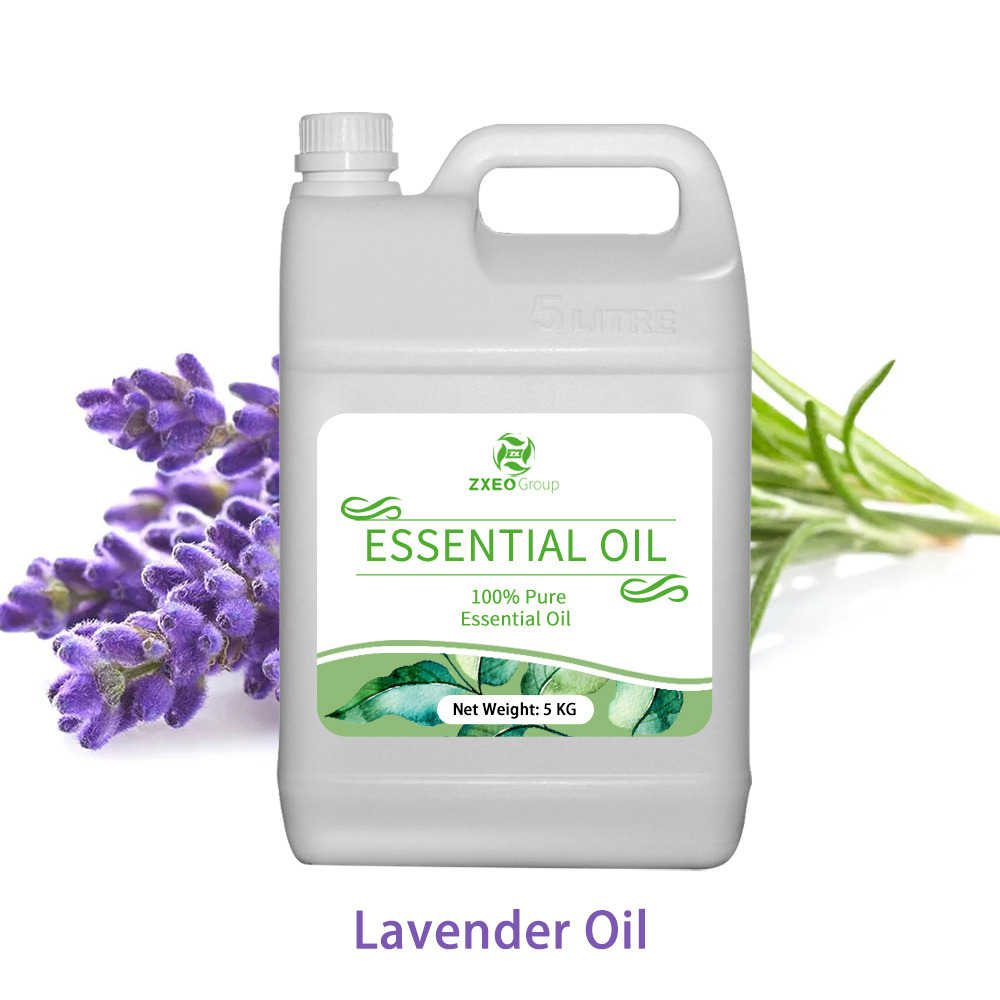
Lavender Essential Oil for Massage Aromatherapy
Organic lavender essential oil is a middle note steam distilled from the flowers of Lavandula angustifolia. One of our most popular essential oils, lavender oil has an unmistakable sweet, floral and herbal aroma found in body care and perfumes. The name “lavender” is derived from the Latin lavare, meaning, “to wash”. Greeks and Romans perfumed their bathwater with lavender, burned lavender incense to appease their wrathful gods, and believed the scent of lavender to be soothing to untamed lions and tigers. Blends well with bergamot, peppermint, mandarin, vetiver, or tea tree.
Benefits
In recent years, lavender oil has been put on a pedestal for its unique ability to protect against neurological damage. Traditionally, lavender has been used to treat neurological issues like migraines, stress, anxiety and depression, so it’s exciting to see that the research is finally catching up to history.
Widely known for its antimicrobial properties, for centuries lavender oil has been used to fight various infections and combat bacterial and fungal disorders.
Most likely due to its antimicrobial and antioxidant characteristics, Lavandula mixed with a carrier oil (like coconut, jojoba or grapeseed oil) has profound benefits on your skin. Using lavender oil topically can help improve a number of skin conditions, from canker sores to allergic reactions, acne and age spots.
If you are one of the millions of people struggling with tension or migraine headaches, lavender oil may just be the natural remedy you’ve been looking for. It’s one of the best essential oils for headaches because it induces relaxation and relieves tension. It works as a sedative, anti-anxiety, anticonvulsant and calming agent.
Because of Lavandula’s sedative and calming properties, it works to improve sleep and treat insomnia. A 2020 study indicates that Lavandula is an effective and reliable approach to enhance sleep quality in patients with life-limiting illnesses.
Uses
Most of the properties of Lavender revolve around the balancing and normalising of body functions and emotions. Lavender can be used to great effect in massage and bath oils for muscular aches and pains. Traditionally Lavender has been used to aid a good nights sleep.
Lavender Essential Oil is valuable in treating colds and flu. With the natural antiseptic properties it helps combat the cause, and the the camphorous and herbaceous undertones help relieve many of the symptoms. When used as part of inhalation, it is very beneficial.
For headaches Lavender Essential Oil can be put in a cold compress with a couple of drops rubbed into the temples… soothing and relieving.
Lavender helps relieve the itch which is associated with bites and applying neat oil to bites also helps relieve the stinging sensation. Lavender will help soothe and heal burns, but always remember for serious burns to consult a doctor, Lavender isn’t a replacement for medical treatment in the case of a severe burn.

